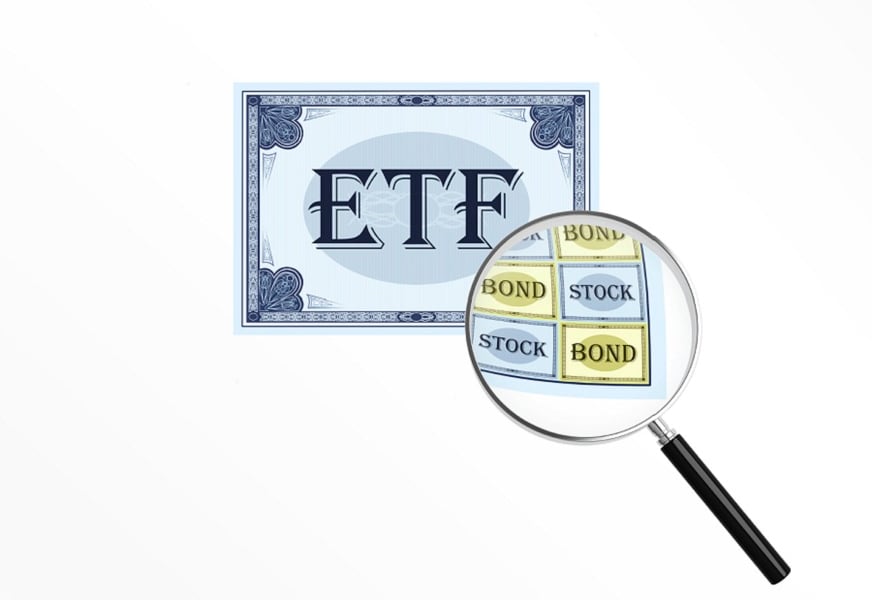Exchange-traded funds looking to tap some of the hottest investment trends are going undercover.
A growing number of
thematic ETFs are changing their identities before they even start trading to conform to a decades-old rule that dictates what issuers can and can't call their strategies. More than a third of such funds started last year tweaked their names during the regulator's approval process, filings show; one fund that initially included blockchain in its name is now described as a "transformational data sharing" ETF.
It's all part of the Securities and Exchange Commission's attempt to get a handle on the rapid proliferation of funds offering investments in everything from 5G networks to electric cars and video games. More than 10% of new ETFs last year targeted a theme, and assets in these funds have nearly tripled between 2014 and 2018. That's put the regulator on high alert.
"We get questions more than we used to where we have to be able to defend our name," said J. Garrett Stevens, chief executive officer of Exchange Traded Concepts, which runs 26 funds, many of which track thematic indexes. "Now almost all names, they'll come back and say 'Can you justify, give us your explanation on why this name is OK?'"
(More: Big finance firms want in on theme ETFs)
Misleading names
The extra scrutiny couldn't have come at a worse time for issuers struggling to stand out amid more than 2,000 competing products. Thematic funds have become a much needed area of growth as the $3.9 trillion ETF market starts to show signs of stress, with catchy names seen as a crucial tool to grab attention and assets.
(More: Life is brutish and short for new ETFs)
Issuers are prohibited from using "materially deceptive or misleading" names under the Investment Company Act of 1940. The SEC adopted Rule 35d-1 in 2001 — known as the Names Rule — to further define this, and require that funds ensure at least 80% of assets are in the type of investments suggested by their monikers.
While asset managers could opt to rename a fund for marketing reasons, publicly available letters show last year the SEC questioned several issuers that later made a tweak. At least four other providers had their names queried before ultimately keeping them, correspondence show. And even some broader funds that wanted thematic descriptions changed them after regulatory scrutiny.
So far the trend has continued into 2019. "Names have to match up to what the fund does," SEC commissioner Hester Peirce said on the sidelines of a digital assets talk last month. The watchdog can issue a stop order that prevents the fund from offering shares to investors, if an issuer shrugs off its concerns.
Who dat?
But some name changes risk obfuscating rather than illuminating strategies, according to David Perlman, an ETF strategist at UBS Global Wealth Management. "There could be more confusion with names if certain words cannot be used in the title."
A fund from Defiance ETFs focused on communication networks started life as the 5G Next Gen Connectivity ETF, but dropped the nod to 5G before listing earlier this year. Pacer ETFs originally planned to describe its
Military Times Best Employers ETF as the Best for Vets Equity ETF before shelving that plan following pushback from the SEC, letters show.
And last year, two funds were encouraged to remove "blockchain" from their names at the 11th hour, people familiar with the matter said at the time. The Amplify- and Reality Shares-branded ETFs both referenced the digital ledger in early filings, but eventually adopted different names, as did other funds with a similar theme.
Protecting buyers
While some investors could find this confusing, "people who are seeking out those exposures know full well what they're going into and can read between the lines," said Ben Johnson, who heads passive strategy research at Morningstar Inc. "If anything, it could potentially prevent someone from ever locating a particular fund that could ultimately prove harmful."
Media representatives for Amplify declined to comment. The final name of the Reality Shares fund was a compromise with regulators, according to CEO Eric Ervin. Defiance dropped '5G' when it looked like sticking with the term would delay its start, according to Paul Dellaquila, global head of ETFs at the company. Pacer tweaked its fund name because the SEC told it to be clearer, said Sean O'Hara, the issuer's president; the firm still uses the original moniker to describe the strategy on its website.
Instead, issuers are using trading tickers to guide investors to their funds. They can reserve the tags, which are approved by the stock exchange, months in advance of a fund coming to market — encouraging horse-trading between products that want the same ticker.
Despite losing blockchain from its name, Amplify's fund trades as BLOK while Reality Shares chose BLCN. Defiance's connectivity ETF is known as FIVG, while Pacer picked the VETS symbol for its ETF.
"We spend a lot of time talking about tickers and making sure we like the ticker and that it's catchy," Mr. O'Hara said. "The name's important from a transparency perspective for the client; the ticker is important from a marketing perspective."







